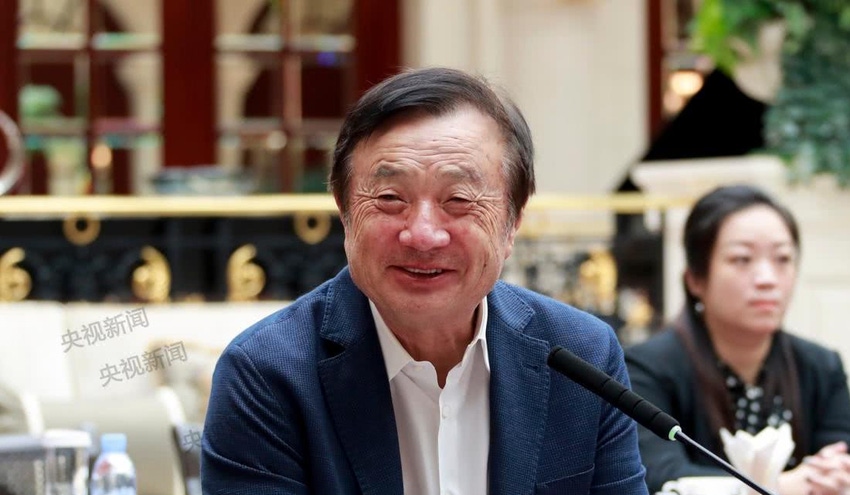In the latest edition of ‘A coffee with Ren’ the Huawei founder graced a wide range of topics from data protection to 6G, but perhaps the most important area was the licensing idea which has been floated.
October 1, 2019

In the latest edition of ‘A coffee with Ren’ the Huawei founder graced a wide range of topics from data protection to 6G, but perhaps the most important area was the licensing idea which has been floated.
It is an interesting thought. Huawei founder Ren Zhengfei is prepared to license the technology which has fuelled the vendors drive towards the top of the connectivity ecosystem, to create a competitor. And just any competitor, one from the US, the very country which is driving the misery and headaches in Shenzhen.
For some, actively creating a competitor might be considered somewhat of a risk, but this is not how Ren see things.
“First, we will get a lot of money from the licensing,” said Ren. “That will be like adding firewood to fuel our innovation on new technologies. It will mean that we will have a better chance of maintaining our leading position.
“Second, we will bring in a strong competitor. This will prevent our 190,000 employees from becoming complacent. They’ll know that if they sleep on the job, they might wake up and find they have lost their jobs.
“Sheep become stronger when they are chased by wolves. I don’t worry that a strong competitor will emerge and drag Huawei down. In fact, I would be happy to see that, because this would mean that the world is becoming stronger.”
This might sound like a corporation putting a brave face on an uncomfortable situation, but there is some logic to it.
Ren has suggested the new competitor should probably be a US firm, as Europe already has its own vendors in this space. This presents a very interesting opportunity for Huawei. Presumably, a US vendor would have an excellent opportunity to secure valuable contracts with US telcos. If you have a look at the vendors activities in their own domestic markets, they are generally very successful.
Should this presumption prove accurate, Huawei won’t be making money directly from the US market, but through license fees, it will secure indirect revenue. The more successful this company is, the more revenue Huawei can realise through licensing.
The US is an incredibly large and lucrative market for network infrastructure vendors and Huawei has been almost non-existent to date. It might have secured contracts with some of the regional telcos, but these are not the riches which are promised in the ‘Land of the Free’. Huawei will be making money somewhere it has never really made money before. Suddenly, the licensing plan starts to look like an understated but clever move.
The technology will be licensed to the exclusive partner on fair, reasonable and non-discriminatory (FRAND) terms, with the team offering everything associated to 5G. That means software source codes, hardware designs, production technologies, as well as network planning and optimization and testing solutions, as well as chip design technology.
Although the company which undertakes this license will go toe-to-toe with Huawei on a technology basis, it will also have to prove it can support customers in the same way.
One of the reasons Huawei has been a success in recent years isn’t simply down to the technology. CTOs and network executives have noted to us that the support offered to customers post-sale sets the vendor apart, while the team is more open than most to consider customisable solutions to meet the unique demands of each vendor. This attention to detail is one of the reasons Huawei is perhaps considered the leader in the market.
Overall, this is of course a way to ease the tension between the White House and Huawei. We suspect this will not have much of an impact on the overarching trade-war between the two global super-powers, however that is of little concern to Huawei. This is a commercial organisation. It matters little if there is political conflict overhead, just as long as the company is not drawn into the saga.
The big question which remains is whether this will appease the aggression of the US.
The attraction of gaining more traction in the network infrastructure space might well be a tempting offer to disperse the aggression. The US is a company which wants to control the 5G ecosystem after all, as does pretty much every country. This is perhaps one of the contributors to the tension between the US and China.
As Ren pointed out during the coffee session, the saga does need to be resolved before more powerful technologies are being discussed in wider society.
“5G is not that amazing; its power is exaggerated by politicians,” said Ren. “AI will have an even brighter future. I hope we will not be added to the Entity List again in the AI era.”
Huawei is not the biggest and best software company around (just yet) therefore we cannot see the company taking a lead in the AI-era. It’s heritage and excellence primarily lie in the hardware, however it is a risk should the tension continue to remain at a stalemate between the two global superpowers.
About the Author(s)
You May Also Like








.png?width=300&auto=webp&quality=80&disable=upscale)


_1.jpg?width=300&auto=webp&quality=80&disable=upscale)


.png?width=800&auto=webp&quality=80&disable=upscale)